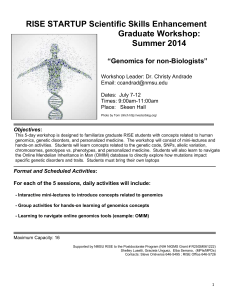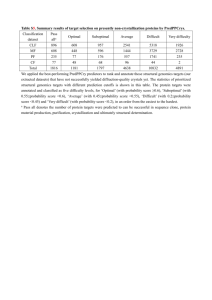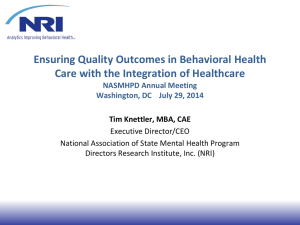AFRI Briefing Bullets: FY 2009 The National Research Initiative (NRI
advertisement
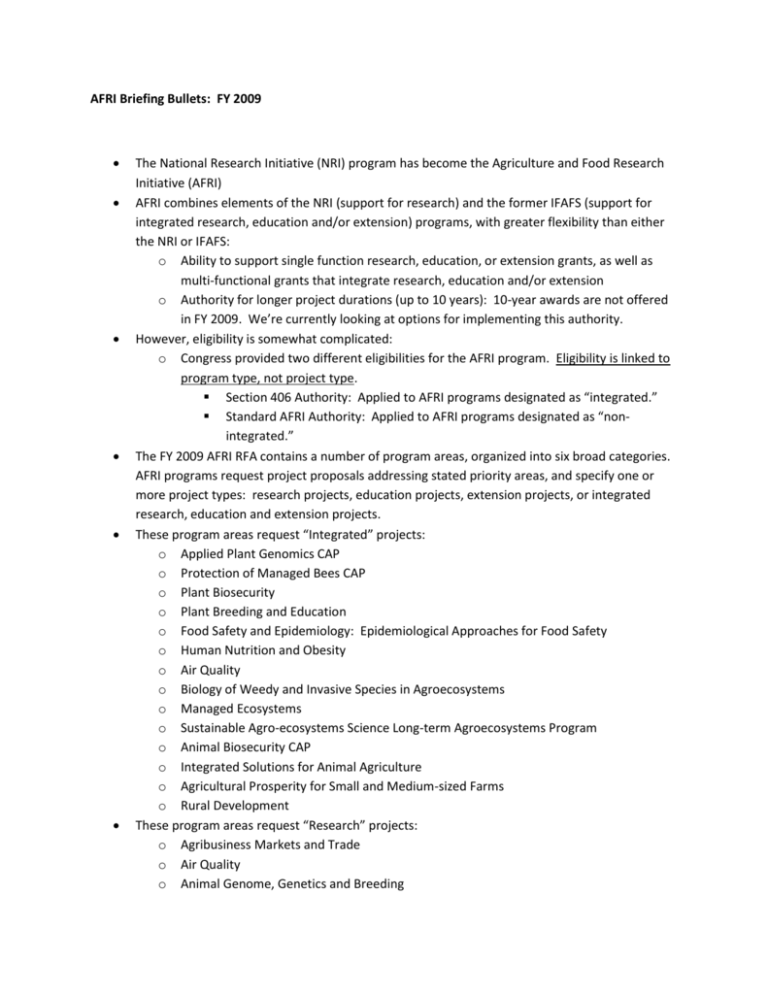
AFRI Briefing Bullets: FY 2009 The National Research Initiative (NRI) program has become the Agriculture and Food Research Initiative (AFRI) AFRI combines elements of the NRI (support for research) and the former IFAFS (support for integrated research, education and/or extension) programs, with greater flexibility than either the NRI or IFAFS: o Ability to support single function research, education, or extension grants, as well as multi-functional grants that integrate research, education and/or extension o Authority for longer project durations (up to 10 years): 10-year awards are not offered in FY 2009. We’re currently looking at options for implementing this authority. However, eligibility is somewhat complicated: o Congress provided two different eligibilities for the AFRI program. Eligibility is linked to program type, not project type. Section 406 Authority: Applied to AFRI programs designated as “integrated.” Standard AFRI Authority: Applied to AFRI programs designated as “nonintegrated.” The FY 2009 AFRI RFA contains a number of program areas, organized into six broad categories. AFRI programs request project proposals addressing stated priority areas, and specify one or more project types: research projects, education projects, extension projects, or integrated research, education and extension projects. These program areas request “Integrated” projects: o Applied Plant Genomics CAP o Protection of Managed Bees CAP o Plant Biosecurity o Plant Breeding and Education o Food Safety and Epidemiology: Epidemiological Approaches for Food Safety o Human Nutrition and Obesity o Air Quality o Biology of Weedy and Invasive Species in Agroecosystems o Managed Ecosystems o Sustainable Agro-ecosystems Science Long-term Agroecosystems Program o Animal Biosecurity CAP o Integrated Solutions for Animal Agriculture o Agricultural Prosperity for Small and Medium-sized Farms o Rural Development These program areas request “Research” projects: o Agribusiness Markets and Trade o Air Quality o Animal Genome, Genetics and Breeding o Animal Growth and Nutrient Utilization o Animal Health and Well-Being o Animal Reproduction o Arthropod and Nematode Biology and Management o Bioactive Food Components for Optimal Health o Biobased Products and Bioenergy Production o Plant Genome, Genetics and Breeding o Improving Food Quality and Value o Plant Biology o Soil Processes o Water and Watersheds o Microbial Genomics: Functional Genomics of Microorganisms o Animal Genome, Genetics and Breeding o Microbial Biology: Microbial Associations with Plants o Food Safety and Epidemiology: Biological Approaches for Food Safety o Food Safety and Epidemiology: Practical Approaches for Food Protection o Nanoscale Science and Engineering for Agriculture and Food Systems These program areas request “extension” projects: o Human Nutrition and Obesity o Plant Biosecurity These program areas request “education” projects: o Microbial Genomics o Bioactive Food Components for Optimal Health o Improving Food Quality and Value o Soil Processes o Biobased Products and Bioenergy Production With only one exception (Air Quality), research projects and integrated projects will not be reviewed in the same panel. This will help to address concerns stated by Extension Directors in the past. The 30% minimum investment in integrated programs under AFRI provides more dollars for this kind of work than under the NRI. Accordingly, we expect to need more extension and education experts for AFRI peer review panels than needed by NRI in the past. o Directors are requested to identify strong extension and/or education experts from their states and encourage them to volunteer for service on peer review panels. Interested individuals should directly contact the relevant National Program Leader to volunteer, sending a current c.v. for the NPL’s reference. The AFRI program offers special grant types for new investigators, for post-doctoral fellows, and for applicants from small, mid-sized and minority serving institutions in more program areas than was offered under the NRI. Interested faculty should refer to the RFA and contact relevant NPLs with questions. The FY 2010 RFA planning process is underway. Your input is welcome.
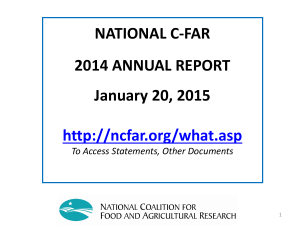
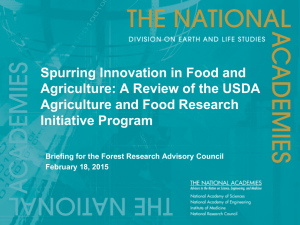
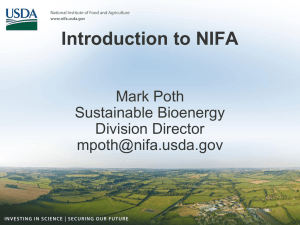
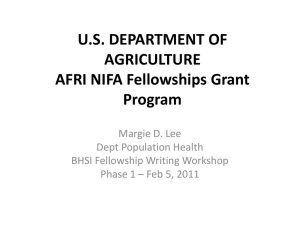
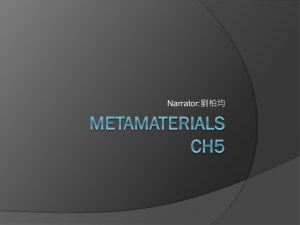
![9_Komlenac - start [kondor.etf.rs]](http://s2.studylib.net/store/data/005352037_1-bdc91b0717c49a75493200bca431c59c-300x300.png)
